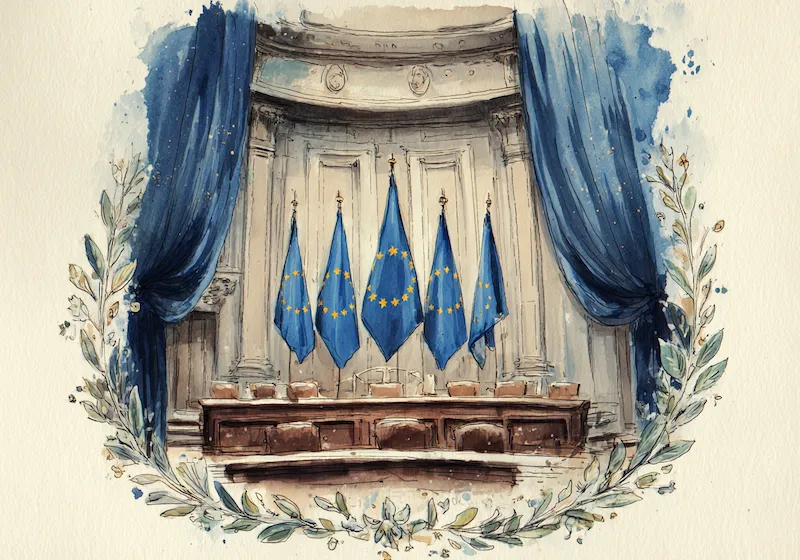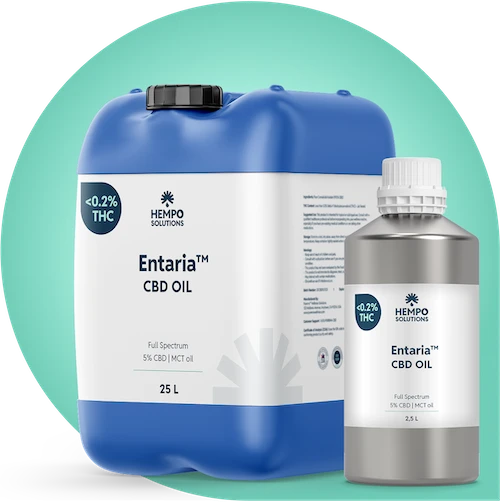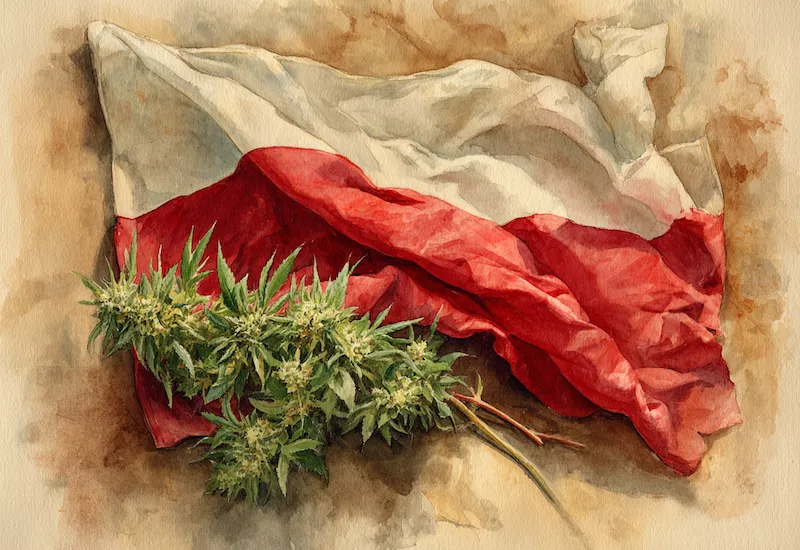Background and Growth of CBD in Europe
CBD’s popularity in Europe has been shaped by changing attitudes toward cannabis, as well as evolving medical and wellness markets. For brands, understanding this background is important to anticipate how regulations and demand have developed.
When Did CBD Become Popular in the EU?
CBD’s popularity in the EU began rising significantly around 2017, when a shift in attitudes toward medical cannabis also encouraged greater acceptance of CBD products. While CBD itself was not banned before, clearer national regulations helped make its use more widespread.
Today, CBD is marketed across Europe as a wellness ingredient promoted for stress relief, sleep support, and general wellbeing. As regulations evolve, the European CBD market continues to expand, offering opportunities for brands that stay informed and compliant.
Regulatory Complexity in the Food Sector
The food sector presents unique regulatory challenges for CBD. Varying rules, novel food requirements, and suspended approvals have created uncertainty that businesses must navigate carefully.
The Unclear Status of CBD Foods
Navigating the food sector is particularly challenging due to regulatory uncertainty. Under the EU’s Novel Food framework, CBD is classified as a “novel food” ingredient. In recent years, the European Food Safety Authority (EFSA) suspended parts of the approval process, adding further complexity.
For businesses, this means:
-
Uncertainty about market approval timelines
-
The need for robust safety data to support applications
-
Careful planning to avoid compliance risks
Until these authorisations are granted, selling CBD-infused food products remains difficult under EU law
Hemp Food Ingredients in the Market
In contrast to CBD, certain hemp-derived ingredients enjoy clearer regulatory acceptance in Europe. The EU has confirmed the safe consumption history of:
-
Hemp seeds
-
Hemp seed oil
-
Herbal infusions
These ingredients can be marketed without Novel Food approval, provided they comply with THC limits set by Commission Regulation (EU) 2023/915. This regulation also specifies maximum THC levels in hemp-infused foods, underscoring the importance of third-party lab testing for compliance.
CBD Foods and Beverages
CBD-infused food supplements are firmly regulated as novel foods. To gain authorisation, these products must:
-
Demonstrate safety through submitted data
-
Avoid nutritional disadvantages
-
Ensure they do not mislead consumers
At present, no CBD food supplement has received EU-wide approval. Businesses should carefully assess these barriers before marketing ingestible CBD in Europe.
Regulations for Hemp and CBD Products

Launching a CBD product line in Europe requires careful consideration of sourcing, labelling, and product categories. Different rules apply depending on the product type, and businesses must understand these to maintain compliance.
Sourcing and Labelling Requirements
Brands need to:
-
Source CBD that meets EU quality and THC standards
-
Ensure accurate labelling and compliant marketing claims
-
Navigate varying national rules across member states
Clear, consistent labelling and transparent sourcing help build consumer trust and support long-term success in Europe’s CBD market.
CBD Cosmetics
CBD cosmetics benefit from clearer regulation under EU law. Article 3 of the Cosmetics Regulation allows CBD derived from hemp seeds and leaves (excluding flowering tops), provided safety standards are met.
Key requirements include:
-
Compliance with safety assessments
-
Accurate ingredient labelling
-
Excluding extracts from fruiting tops
CBD cosmetics are popular in Europe for skincare uses, thanks to perceived antioxidant and soothing properties. For brands, meeting these standards helps avoid legal issues while appealing to wellness-conscious consumers.
Recent and Upcoming Legislative Changes
CBD regulation in Europe continues to evolve, with recent policy reviews, country-level proposals, and legal challenges shaping the market landscape. Businesses must stay aware of these changes to plan their strategies effectively.
Latest Legislative Changes
The European Commission continues to review CBD’s status under the novel food framework. As of 2024, CBD remains classified as a novel food, requiring authorisation before use in ingestible products.
Both businesses and consumers hope this process will lead to clearer, more predictable rules that facilitate safe trade and consistent market access across the EU.
Current Uncertainties in France
In October 2023, France submitted a proposal to the European Chemicals Agency (ECHA) to classify CBD as a potential carcinogenic, mutagenic, or reprotoxic (CMR) substance due to concerns about reproductive toxicity.
This proposal, originally introduced in 2023, has sparked debate. While some data suggests possible risks, critics argue the move may be politically motivated rather than purely evidence-based. The ECHA has requested further safety data to inform its assessment.
New Policy Directions in Europe
CBD regulation in Europe has evolved in part thanks to legal and scientific developments. The World Health Organization (WHO) has recognised CBD’s potential therapeutic benefits and recommended excluding it from controlled substance lists.
At the same time, the Court of Justice of the European Union (CJEU) has upheld the principle of free movement for CBD products legally produced in any member state. These developments have encouraged more flexible national regulations.
Implications of the Court of Justice of the EU
The 2020 CJEU ruling confirmed that EU member states cannot ban the sale of CBD products legally produced in another member state, except where restrictions are strictly necessary to protect public health.
This has important consequences for cross-border trade, reinforcing the need for harmonised standards and supporting businesses in navigating Europe’s complex regulatory environment.
WHO Recommendations on CBD
WHO’s position has influenced European and global views of CBD. Its reviews have highlighted CBD’s generally good safety profile and potential for treating conditions such as epilepsy.
These recommendations have encouraged regulators to consider more flexible, science-based policies, even as debate continues over safety and appropriate usage.
Harmonising CBD Regulation Across Europe

Achieving a unified approach to CBD regulation remains a challenge but is widely seen as essential for industry growth and market stability. Businesses and regulators are working toward consistent rules that balance safety with accessibility.
Future Challenges and Expected Reforms
Despite progress, Europe still lacks fully harmonised CBD regulations. THC thresholds, labelling requirements, and permitted uses can vary between countries, complicating cross-border trade.
Efforts are underway to:
-
Standardise THC limits (generally 0.2 – 0.3%)
-
Align labelling and safety requirements
-
Streamline approval for novel foods
Brands must stay informed about these evolving standards to plan effectively.
Current Debates and Prospects
Ongoing discussions show the difficulty of balancing access with safety. Some countries, like France, are considering stricter controls, while others support wider access with robust safety measures.
The European Commission’s ongoing review of CBD’s classification, along with WHO guidance, may help move toward more consistent and science-based policies that support both consumer safety and industry growth.
Conclusion
CBD regulation in Europe remains in transition, with regulators working toward clearer, more harmonised standards. For brands, staying informed about national and EU-level rules is essential for compliance and market success.
As regulatory frameworks develop, businesses that prioritise transparency, safety, and proactive engagement with evolving guidelines will be best positioned to thrive in Europe’s growing CBD sector.







